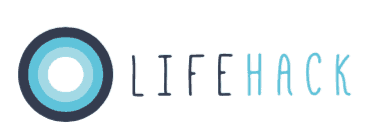Online Project Kitchens
Experimenting with online facilitation
Over the past six months, Lifehack has been experimenting with online environment as a way to get ideas off the ground and awhi the work of various members of our community.
In February, Olivia & Kieran hosted a online ako about supporting LGBTIQ to flourish and then in March Christina hosted a kōrero on working and living biculturally.
The Project Kitchen process
This month we changed tact and experimented with the project kitchen format–which we have used in person at our Fellowship and Oro programmes in the past.

“Project Kitchen gives participants concrete ideas and encouragement for moving forward in their
projects or ventures”
Jade’s idea
We must give a big mihi to Jade, who was our wonderful project holder (the ‘chef’ we like to call it). Jade put forward an idea that aims to establish Upper Hutt as a source of musical talent and a region that young people can be proud of.
Jade was joined by six guests, which included an educator, counsellor, social entrepreneur, full time mum and Lifehack team members. Jade started by giving the guests a quick overview of her idea, where it came from and what impact she was hoping to have:
“I’d be looking to develop bands/musicians to a point where they are at a point of auditioning for a major event like Smokefree Rockquest. Through bringing in industry mentors who are also Upper Hutt locals I’d like the creative misfits of Upper Hutt to be proud of their identity, to nurture them and offer a sense of belonging.”
Potent questions to ask of your project ideas
Dinner guests were then invited to ask a series of clarifying questions. If you’ve got ideas bubbling away, these questions might help you get your ideas out of your head and into prototypes:
- What environment would this take place in, e.g. in school or after school?
- Are there ways that you might incorporate this into NCEA credits via musicianship or stage management?
- Have you checked out the growing evidence base around music therapy?
- Who might you partner with?
- How might you keep yourself and others safe?
- What might recruitment for your first prototype look like?
Amazingly, it turned out something similar has been growing up in Kaitaia. Jade was invited to link in with that group to explore what they had learnt to date running a similar kaupapa.
Excitement, combined with risk management
Creating safe spaces for and with young people was a cornerstone of much of the conversation.
One lasting tip was to think about how partnerships and organisational backing can support you with your legal obligations under the Vulnerable Children’s Act.
If you’re a lone wolf running a youth wellbeing project, and somebody gets physically or mentally injured, you would need appropriate processes and safeguards in place. Partnering with an organisation that already has those safeguards (like insurance) can help you to test a new idea safely.
We closed up the session with each person sharing their takeaways–which ranged from “This has been a safe, inclusive process” through to “this has been a good reminder that amidst all the excitement of a new idea there are some processes that we need to look at to keep ourselves and others safe”.
Now it’s your turn!
If you are interested in Jade’s idea, you can get in touch with her via email.
If you’re interested in hosting your own Project Kitchen (online or offline) you can get the instructions from our good friends at Enspiral.
If you’re thinking of running it online we reckon the best platform to use is Zoom, however appear.in, Facebook Calling and Google Hangouts can be good alternatives.

